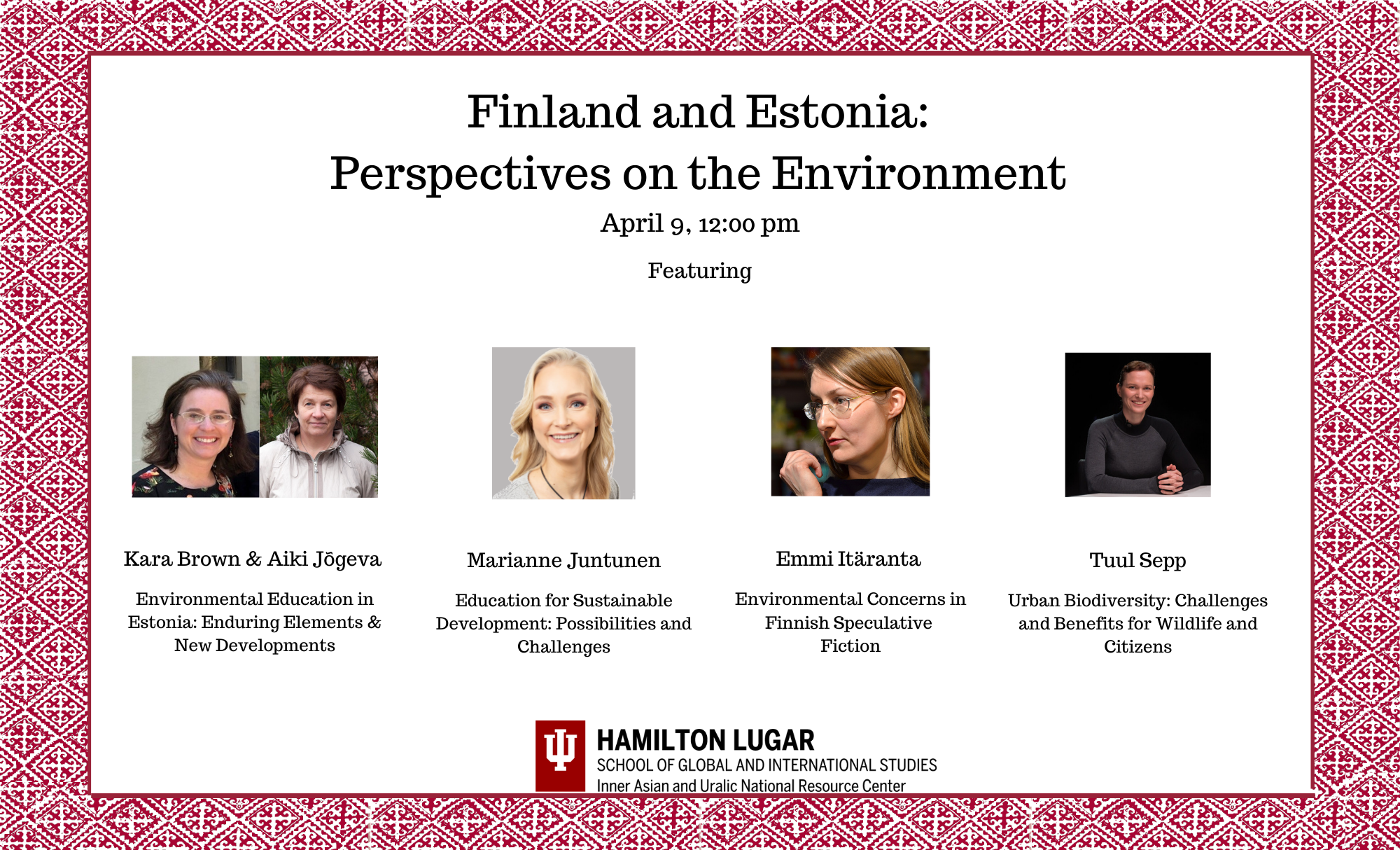Finland and Estonia are well known for their concern for the fragile and highly valued environment in which their populations live. Finns and Estonians have long had a special relationship with nature, very aware of the unique gift that has been afforded to them. As a globalizing and intrusive world makes its presence felt more and more, they face growing challenges in protecting and sustaining their physical surroundings. For its annual Spring Symposium IAUNRC invited five experts from Estonia, Finland, the United Kingdom, and the United States to explore these challenges from a range of multi-disciplinary perspectives, including education, literature, and biodiversity.
Kara Brown, Associate Professor of Educational Studies at the University of South Carolina, and Aiki Jõgeva, a science teacher at the Kääpa Basic School in the southeastern Estonia, spoke about the defining aspects of environmental education in Estonia on both the national and local levels, especially since the restoration of independence. The state government’s policies, implemented nationwide, clearly have an impact throughout the country, and the Kääpa Basic School served as an excellent example of how sustainable and robust environmental education is provided on the elementary level. Marianne Juntunen, who holds a Ph.D in chemistry education and teaches in a small school in northern Finland above the Arctic Circle, stressed that in Finland Education for Sustainable Development (ESD) is a compulsory and multi-disciplinary subject at all levels of education. Finland is well known for its student-centered and inquiry-based learning methods, and the focus in education is more on personal learning that emphasizes inner motivation rather than on testing as a means of evaluation.
Emma Itäranta, a Finnish writer based in the United Kingdom who has published three novels and other forms of belles lettres, offered a brief history of Finnish speculative fiction, focusing in particular on works that highlight ecological themes. She also placed her own work as a fiction writer in this framework. She noted that although citizen engagement with climate change and awareness of the human impact on the environment is becoming more and more evident, in literature and the other arts it has already existed in various speculative genres for decades. TuulSepp, Associate Professor of Animal Ecology at the University of Tartu, Estonia, focused on urban biodiversity and its challenges and benefits for wildlife and citizens. Like many other animals, human beings are ecosystem engineers who modify their surroundings to optimize environmental conditions for their own survival. As we try to rebuild a natural habitat that recalls the African savannah, we are overlooking more recent environmental threats such as loss of biodiversity, air and water pollution, and loss of nighttime darkness. With sufficient commitment, however, we can build biodiverse ecosystems in urban space to improve the quality of human life.
The symposium, which lasted two and a half hours, concluded with a lively Q & A session.


